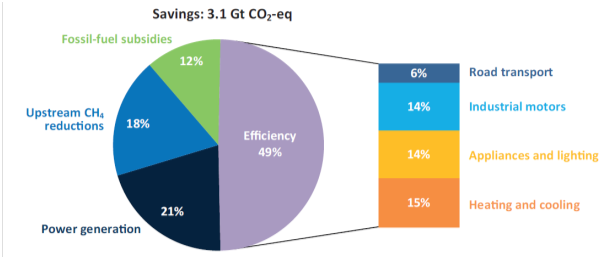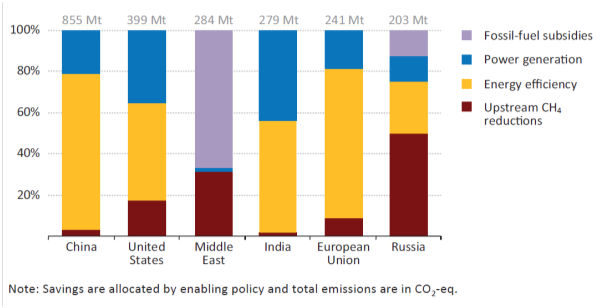IEA proposes four quick wins to buy time
The International Energy Agency (IEA) released a report overnight proposing four initiatives that could significantly reduce carbon emissions within a short period of time, while enhancing economic welfare:
--A partial phase-out of fossil fuel subsidies;
-- Targeted energy efficiency measures in buildings, industry and transport;
-- Halving methane emissions from oil and gas extraction and transport; and
-- Limiting construction and use of the least-efficient coal-fired power plants.
According to the IEA, the chances of containing global temperature rise below two degrees are rapidly slipping beyond our grasp. Instead we are on track to a temperature increase of between 3.6 degrees Celsius and 5.3 degrees Celsius if action is not urgently taken.
These four initiatives are seen as quick wins that won’t deliver the 2 degree goal, but could buy time until longer-term, and more expensive, solutions such as nuclear power and renewable energy, are put in place.
The chart below illustrates the share of emissions savings each quick-win initiative could deliver, according to the IEA’s modelling.
Distribution of CO2 and CH4 emission savings by 2020 from four quick-win initiatives (relative to IEA New Policies Scenario)

Source: International Energy Agency
In terms of the geographical spread of savings, the chart below shows about a quarter of the savings come from China and most of these are through improved energy efficiency. The major oil producers in Russia and the Middle East also have an important role to play through removing their extensive fossil fuel subsidies and reducing methane (CH4) emissions from their oil and gas industries.
Change in energy-related CO2 and CH4 emissions in selected regions (relative to IEA New Policies scenario)

Source: International Energy Agency
According to the lead author of the report, IEA Chief Economist Fatih Birol, these four quick wins are:
“A set of proven measures that could stop the growth in global energy-related emissions by the end of this decade at no net economic cost. Rapid and widespread adoption could act as a bridge to further action, buying precious time while international climate negotiations continue.”
For those who have been closely involved in the energy sector and energy policy, there can be little doubt there are a range of ‘no regrets’ actions that could deliver big emission savings at no net economic cost. The problem is that implementing them involves political costs and challenges. Removing subsidies for oil, for example, will provoke anger.
Politicians, at least in the developed world, continue to baulk at even some of the most straightforward regulatory interventions to phase out highly inefficient energy consuming equipment and appliances. For example, the Australian government has quietly shelved any attempt to implement motor vehicle CO2 emission standards, which it promised at the 2010 election, for fear of impacts on the Australian car industry.
These initiatives make economic and environmental sense. But they aren’t necessarily easy for politicians to execute.
















